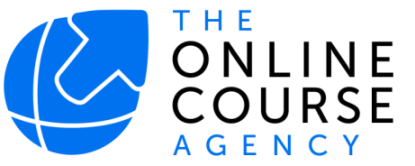
How to sell courses without a complicated funnel
Selling online courses doesn't have to be as complex as some might think. As an agency owner specializing in helping online educators—those with membership sites, online courses, and coaching programs—I often encounter a common misconception. Many believe you need intricate marketing funnels to sell effectively—funnels filled with webinars, upsells, downsells, and live launches. From my experience in analyzing and simplifying clients’ sales processes, a streamlined approach can be just as successful. A good offer, properly priced and easy to understand, can convert without the frills.
A key factor to straightforward sales success is ensuring the offer is accessible and relatable, lacking dependency on the creator's personal brand to build trust. This means that while high-ticket items often require in-depth funnels to establish credibility and value, lower-priced, skill-based courses can leverage their innate appeal for impulse purchases. Coupled with targeted advertising and time-sensitive promotions such as coupon codes, direct course sales become not only possible but effective.
Key Takeaways
Effective online course sales can be achieved with a simplified, direct approach.
Ensuring the offer is low-cost and easy to understand boosts its appeal for immediate purchase.
Time-sensitive promotions and targeted advertising can replace complex funnels for lower-priced courses.
Simplicity in Selling Online Courses
When approaching the sale of online courses, I often observe a common misconception that a complex sales funnel is necessary to succeed. I want to clarify that with the right conditions, simpler can be better. Here are the main points that enable a straightforward approach to selling online courses effectively:
Low Ticket Offers: The course should be priced accessibly, ideally around $200 or below. Although I've seen success with clients up to $650 by bundling multiple offers, high-ticket items generally require more complex funnels.
Ease of Understanding: For simplicity to work in your favor, the course must be easily grasped by potential students. It should be clear what the course is about and what skills it imparts without reliance on the creator's personal influence.
Utilization of a Coupon Code: Introducing a coupon code pairs well with a straightforward approach, incentivizing immediate action from potential customers.
Deadline Implementation: Pair the coupon code with a deadline to encourage prompt purchases, leveraging the power of scarcity and urgency without overcomplicating the sales process.
Meeting these criteria helps in selling your course directly to those interested without the need for an elaborate funnel. The essential aspect is to have a strong offer that resonates and converts well when presented to the right audience.
Conditions for Direct Course Sales
Condition 1: Price Point
When considering direct sales for my courses, keeping the price point manageable is crucial. I find offers priced around or under $200 tend to work best for a straightforward purchasing decision. Here's a quick guideline:
Under $200: Ideal for impulse buys and straightforward value perception.
Up to $650: Possible when bundling offers, but the risk of hesitation increases.
Higher-priced offers typically require more complex funnels and additional convincing.
Condition 2: Understandability of Offer
The offer must be clear and easily grasped by potential students. A successful direct sale hinges on the ability for the buyer to immediately recognize the value of what they're purchasing. For example:
Trade-related courses: Optimal for direct sales (e.g. painting, dance, music production).
Personality-dependent courses: More challenging (e.g. life or business coaching).
The simpler the concept, the less explanation is needed, enhancing the likelihood of a straight purchase.
Condition 3: Use of Persuasive Elements
In my experience, the strategic use of persuasive elements like coupon codes paired with deadlines can significantly boost sales. Consider this approach:
Coupon Codes: They provide an instant incentive for buyers on the fence.
Deadlines: Creating urgency can prompt immediate action.
These tactics help to convert interest into sales quickly without needing elaborate sales funnels.
The Role of Personal Brand in Offer Trust
In my experience running an agency that nurtures online educators, I've learned the significance of personal branding in selling courses without complex funnels. I've worked with clients who have proven that if the offer ticks certain boxes, the need for intricate funnels becomes redundant. Here's how a robust personal brand can simplify the process and instill trust in potential clients:
Price Sensitivity:
Offers that I put up are generally low ticket. They can range up to $200, and occasionally, when bundled neatly, can extend to $600. This price strategy is fundamental since high-ticket items typically require more elaborate sales mechanisms.
Clarity in Offerings:
The courses I provide are straightforward and skill-based, like painting, dancing, or music production. The directness of the offer removes any ambiguity about the value being presented to the student.
Requirement Description Price Point Keep it under $200, stretching only to $650 for bundles. Nature of the Offer Skill-specific; the focus is on practical knowledge transfer.
Personal Brand and Credibility:
When I showcase my personal proficiency in a skill, for example, playing the guitar, the prospective buyers only need to recognize that I can play well. They don't need to rely heavily on who I am as a person but on the demonstrated expertise.
Coupon Codes and Deadlines:
I often employ tactics such as coupon codes with a clear expiry date. This encourages prompt decisions and imparts an additional layer of value to the offer.
What's noteworthy is the contrast when selling a service based on personal transformation, like life coaching. Here, my personal brand plays a more pivotal role. Potential clients have to believe in my ability to enhance their lives, and thus, establishing a strong personal brand, complete with credibility and trust, is non-negotiable.
Impulse Buying Factors
When selling online courses, simplifying the sales process can be highly effective. I've found that certain factors can encourage impulse purchases, especially when your offer is straightforward and doesn't require complex funnels or webinars. Here are a couple of key considerations to ensure your offer has the potential for impulse buying:
Price Point: The product price significantly affects impulse buying. In my experience, offers priced at $200 or less are more conducive to spontaneous purchases. Some of my clients have extended this threshold up to $600 by bundling products, but generally, higher-priced offerings like a $2K coaching program are less likely to be bought on impulse.
Offer Clarity: The offer must be easy for potential customers to understand without the requirement of additional explanations. As an example, technical or trade-related courses like painting, dance, or music production are easier for buyers to assess quickly. If a potential student sees a performance and then an offer for a course on how to achieve what they just witnessed, they're more likely to purchase on the spot if the price feels right.
In marketing my courses, I always remember that the decision-making process for buyers is swifter when there's clarity in what's being offered and the price is accessible. To boost the appeal for an impulse buy, I've found that using a coupon code in conjunction with a deadline can drive immediate action. Buyers seeing a limited-time offer at a discounted price often feel an urgency to capitalize on the deal, thus, increasing the likelihood of an impulse purchase.

Copyright © 2024 Online Course Agency. All rights reserved.
We use cookies to help improve, promote and protect our services. By continuing to use this site, you agree to our privacy policy and terms of use.
This site is not a part of Facebook website or Facebook, Inc.
This site is NOT endorsed by Facebook in any way. FACEBOOK is a trademark of FACEBOOK, Inc.

